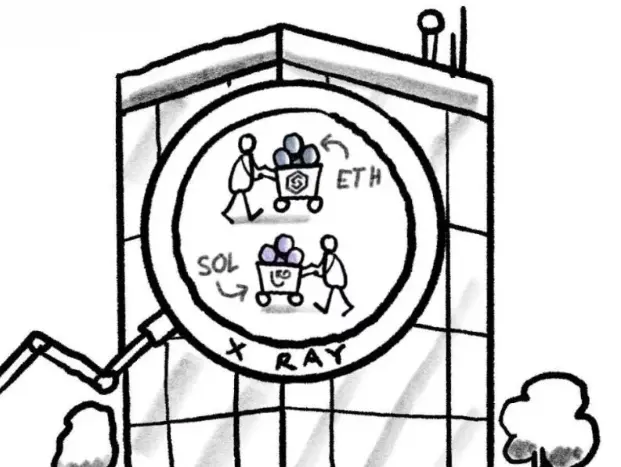Developer ports Tornado Cash to MegaETH testnet as Treasury Department lifts sanctions against main protocol
Quick Take A developer known as Gunboats ported Ethereum-based mixer Tornado Cash to the recently-launched testnet of MegaETH, which claims a capacity of 20,000 transactions per second. The U.S. Treasury Department recently removed Tornado Cash and several associated digital wallet addresses from the OFAC specially designated nationals (SDN) sanctions list.

A developer ported crypto "mixing" protocol Tornado Cash to the recently-launched MegaETH blockchain's public testnet, adding the ability to send private transactions to the novel network, which boasts a capacity of up to 20,000 transactions per second.
Developer Gunboats said he was inspired to port the protocol to MegaETH after seeing that the United States Department of Treasury removed economic sanctions against Tornado Cash by nixing its addresses from the OFAC sanctions list following a court decision in January. Gunboats named the new contract ETHTornado .
"I thought, maybe someone should try to deploy [Tornado Cash] on the hottest thing right now...there is no change in code needed and that's really a good thing," said Gunboats. "I supposed this is a half joke."
Gunboats said they used the deprecated Truffle framework to port the code to MegaETH, and that it was a simple process, showing the evolution of smart contract development tools over recent years. "Nowadays you can just use Foundry and write everything in Solidity," Gunboats added.
Some crypto community members noted the possibility of one user "dusting" many wallets with small amounts of funds from ETHTornado; the MegaETH team said yesterday it took just 15 seconds for the team to airdrop testnet tokens to 190,000 addresses. While OFAC dropped wallets that interacted with Tornado Cash from its sanctions list, X user 0x_ultra noted that some crypto projects automatically exclude wallets that have interacted with Tornado Cash from eligibility for airdrops.
"It's really silly anyway whether you can dust people wallet at 10ms or 12 seconds a time, the end result is you got put on the list," Gunboats said in response to that concern.
At least one member of the MegaETH team cheered the development. "You should add this to the community wiki," wrote Bread, the head of community and growth at MegaETH, in a post on X . Bread didn't immediately return a request for comment from The Block.
Gunboats, who said on X they're not based in the U.S., downplayed concerns that their development activity could lead to legal consequences. "Free Roman Storm," Gunboats added, referring to the Tornado Cash developer currently embroiled in a legal battle with the U.S. Department of Justice over his involvement in the Tornado Cash project.
Gunboats said the ported protocol hasn't yet seen much activity, given the lack of an easily usable frontend.
Disclaimer: The content of this article solely reflects the author's opinion and does not represent the platform in any capacity. This article is not intended to serve as a reference for making investment decisions.
You may also like
Market value evaporates by 60 billions! Faith shaken, institutions on the sidelines—has bitcoin’s “post-halving crash” curse come true?
A major reason for the recent plunge is market concerns over a repeat of the "halving cycle"—that is, after a supply reduction triggers a boom, a deep correction inevitably follows. Panic selling by investors, combined with a stagnation of institutional funds and macroeconomic headwinds, have collectively led to a collapse in market confidence.

SharpLink and Upexi: Each Has Its Own Strengths and Weaknesses in DAT
For this model to be sustainable, one of the following two scenarios must occur: either staking truly becomes a corporate cash engine, continuously providing funds for digital asset purchases; or companies must incorporate the planned sale of digital assets into their digital asset strategies to achieve systematic profits.

80% is hype? Six major red lines reveal the true intentions of Stable
It appears to be an infrastructure upgrade, but in essence, it is an early, insider-friendly issuance.

Global assets are falling simultaneously—why have safe havens collectively failed?

